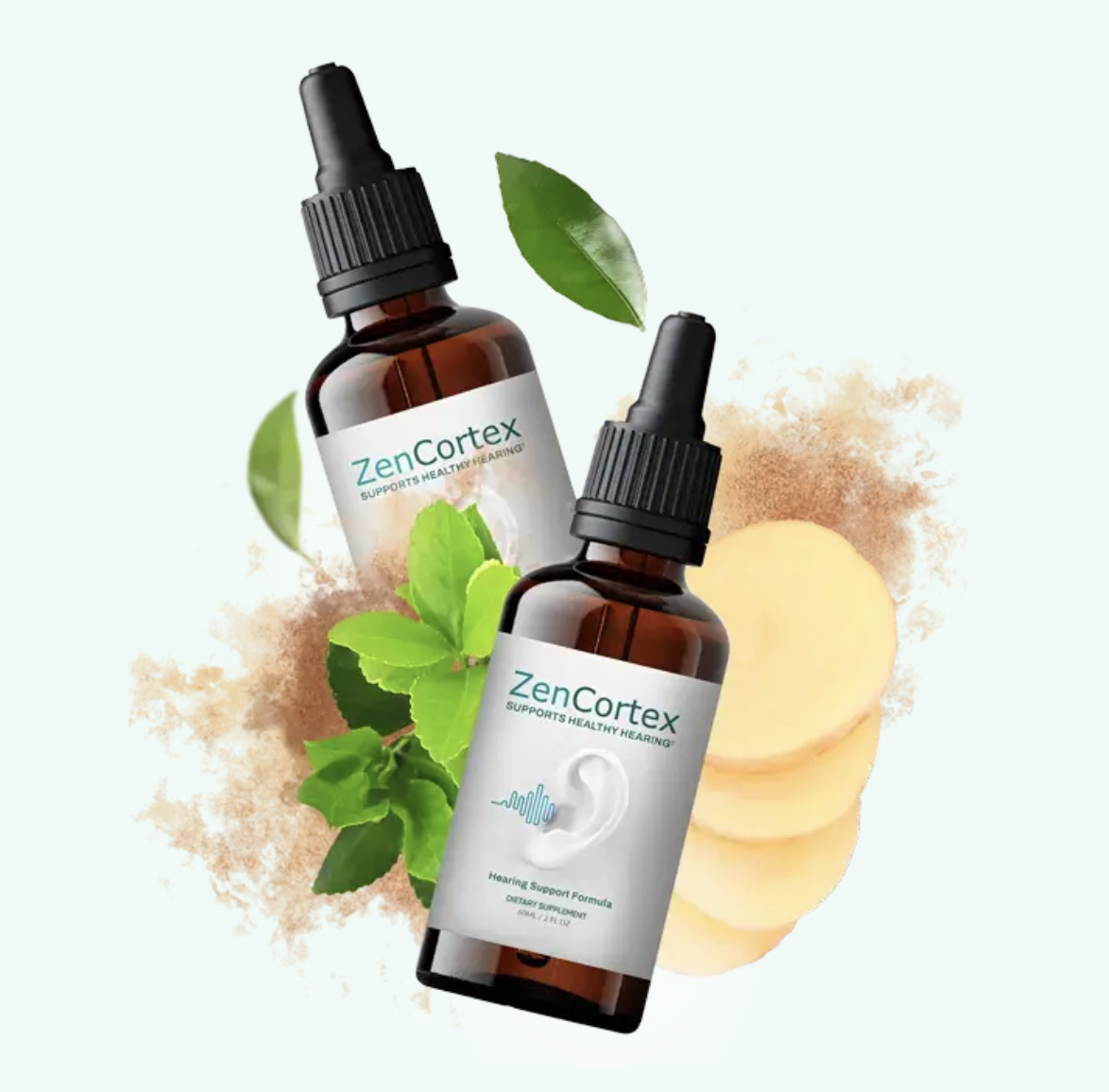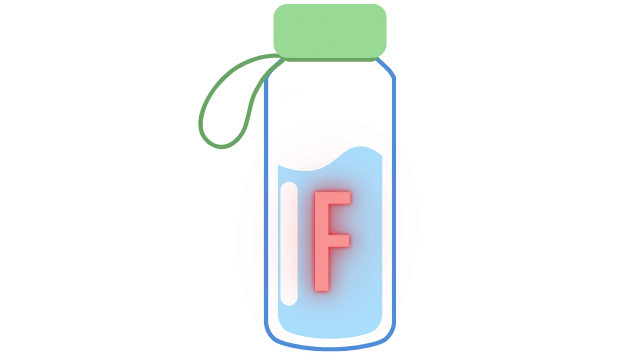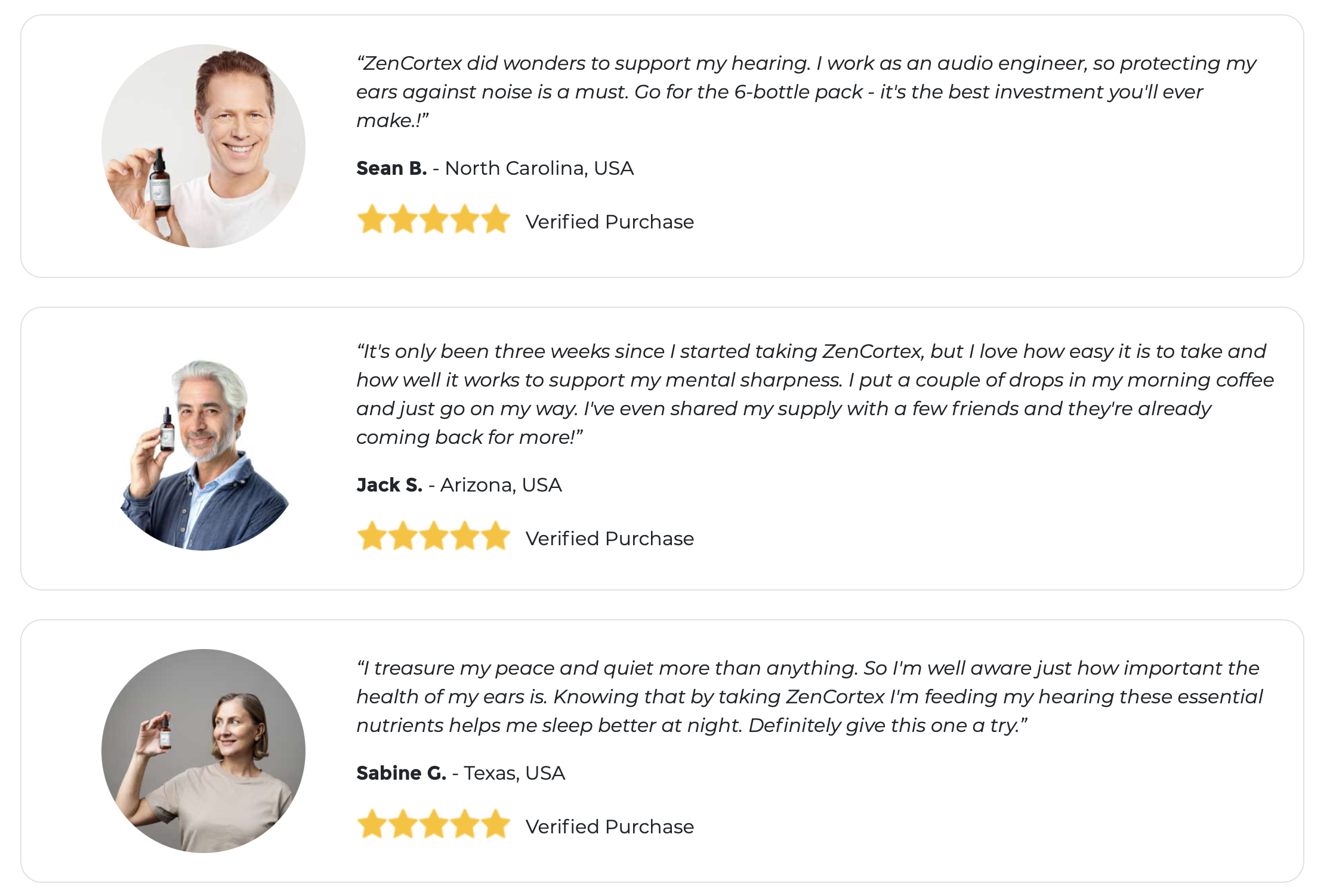About 10 percent of people in the U.S. experience tinnitus for a few minutes each year. Nearly 22 percent of those with tinnitus find relief with hearing aids. These facts show how common and impactful tinnitus is, and the need for good treatments.

For those dealing with ringing or buzzing in their ears, finding a good tinnitus remedy can change their lives. There’s no cure yet, but many treatments can lessen symptoms and improve life quality.
Options like white noise machines and Tinnitus Retraining Therapy (TRT) are available. Audiologists often provide TRT. While drugs don’t cure tinnitus, they can make symptoms less severe. Researchers are also exploring new methods, such as magnetic or electrical brain stimulation, offering hope.
By trying modern sound machines, changing daily habits, and using behavioral therapies, people can manage tinnitus better. The next sections will guide you through the best treatments for tinnitus today.
Buy zencortex tinnitus ear drops here
Key Takeaways
- About 10 percent of Americans experience tinnitus annually for short durations.
- 22 percent of tinnitus sufferers find significant relief through hearing aids.
- While no cure tinnitus solution exists, various treatments can help manage symptoms.
- White noise machines and Tinnitus Retraining Therapy (TRT) are commonly used remedies.
- Innovative treatments like magnetic brain stimulation are under research for future relief options.

Understanding Tinnitus: Causes and Symptoms
Tinnitus affects about 15% to 20% of people. It’s common among veterans, musicians, and those in noisy work environments. This condition makes people hear sounds that aren’t there, like ringing in the ears. Knowing the causes and symptoms helps find the right treatments, including natural cure for tinnitus and holistic tinnitus treatment options.
Buy zencortex tinnitus ear drops here
Common Causes of Tinnitus
Many things can cause tinnitus. It might be from earwax buildup or serious conditions like Meniere’s disease. People who work in loud places or have been exposed to loud noises are at risk. Some medicines, like antibiotics and anti-cancer drugs, can also cause it.
Those with health issues like diabetes, migraines, or thyroid problems are more likely to get tinnitus. Knowing the causes helps find the right tinnitus relief options.
Major Symptoms
The main symptom of tinnitus is hearing sounds that aren’t there. These sounds can be like ringing, buzzing, or clicking. They can be loud or soft and affect daily life a lot.
About 90% of people with tinnitus also have hearing loss. In bad cases, it can lead to fatigue, stress, memory problems, depression, and headaches. Spotting these symptoms helps in finding the right tinnitus relief options, like sound and behavioral therapies.
Diagnosis and Evaluation
Getting an accurate diagnosis and evaluation is key to finding the right tinnitus remedies. It involves several tests and looking at the patient’s history.
Buy zencortex tinnitus ear drops here
Hearing (Audiological) Exam
An audiological exam is crucial. It checks how much hearing loss you have, which is often the cause of tinnitus. Patients wear headphones to hear different sounds. This helps see how well you hear compared to others your age and finds any hearing issues.
Imaging Tests: CT and MRI
Imaging tests like CT scans or MRIs show the ear and brain’s structure. They’re used if tinnitus is one-sided, sounds like a heartbeat, or has other brain symptoms. These tests help find conditions like a tumor or Meniere disease that might be causing tinnitus.
Buy zencortex tinnitus ear drops here
Lab Tests
Lab tests help find health issues that might be making your tinnitus worse. They check for thyroid problems, cholesterol, and heart health. This info helps doctors find the best way to treat tinnitus.
The American Tinnitus Association says knowing your tinnitus history is vital. Tell your doctor about how your tinnitus sounds, how long it lasts, and how it affects your life. They might suggest hearing aids or sound machines to help you.
| Diagnostic Tool | Purpose | Findings |
|---|---|---|
| Audiological Exam | Assess hearing ability | Identifies hearing loss, which is a key cause of tinnitus |
| CT/MRI Scans | Examine ear and brain structures | Detects structural issues or underlying conditions |
| Lab Tests | Evaluate overall health | Reveals additional health concerns like thyroid issues |
Initial Steps: Identifying Underlying Conditions
Finding out what causes tinnitus is key to treating it and finding a proven tinnitus remedy. Tinnitus is like hearing ringing in your ears and can come from many things. This includes problems with blood vessels, ear canal blockages, or certain health issues. Knowing what causes it helps doctors make better treatments.
Some medicines can cause tinnitus as a side effect. Studies show over 200 drugs can lead to tinnitus, like during chemotherapy, with some painkillers, or antibiotics. Seeing a doctor is important to find other treatments or adjust your medicine.
Checking for conditions like Ménière’s disease, heart problems, or hormonal imbalances is also key. These issues can make tinnitus worse. Treating them can help. For example, fixing heart issues or changing your diet and exercise might help with tinnitus. Also, getting treatment for ear infections quickly is important to avoid more problems.
Hearing loss is often linked to tinnitus. Using hearing aids can help a lot, especially if you have both tinnitus and hearing loss. People with hyperacusis, being too sensitive to noise, might find relief with special devices or ways to protect their hearing.
In rare cases, tinnitus can be heard by others, but usually, it’s just in the person’s ears. So, finding out what causes it is very important for the right treatment.
Stress can make tinnitus worse. Techniques like deep breathing and biofeedback, along with cognitive therapy, can help. These can be done at home to reduce stress and lessen tinnitus.
So, figuring out and treating the causes of tinnitus is the first step to finding a cure. This can be through doctor visits, changing your lifestyle, or using special devices. Addressing these issues can really help people with tinnitus.
Buy zencortex tinnitus ear drops here
Medications for Tinnitus Treatment
There is no FDA-approved drug for tinnitus treatment yet. But, some medicines can help manage its symptoms and effects. These medicines help with anxiety and depression, which can make tinnitus better.
Anti-Anxiety Drugs
Anti-anxiety drugs are often used to help with tinnitus. They don’t fix the cause of tinnitus but can lessen the stress that makes it worse. Common medicines for tinnitus include:
It’s important to know the possible side effects and to see a doctor when using these medicines for tinnitus.
Antidepressants
Antidepressants aren’t a direct cure for tinnitus but can affect neurotransmitters. This might make tinnitus less noticeable. The most used antidepressants for tinnitus are:
- Clomipramine
- Desipramine
- Imipramine
- Nortriptyline
- Protriptyline
Like anti-anxiety drugs, antidepressants should be taken with a doctor’s guidance to handle any side effects.
Buy zencortex tinnitus ear drops here
Medicines for tinnitus can help, but it’s key to know their limits. Patients should talk with their healthcare provider about their options. Big companies are working on new drugs for tinnitus, showing the need for ongoing research and trials.
| Medication Class | Examples | Purpose |
|---|---|---|
| Anti-Anxiety Drugs | Alprazolam, Clonazepam, Diazepam, Lorazepam | Reduce stress and anxiety related to tinnitus |
| Antidepressants | Clomipramine, Desipramine, Imipramine, Nortriptyline, Protriptyline | Influence neurotransmitter activity to reduce tinnitus perception |
Noise Suppression Techniques
Noise suppression devices are key in treating tinnitus. They create sounds that mask the ringing in your ears. This helps you sleep better and live more comfortably.
White Noise Machines
White noise machines are a top choice for tinnitus relief. They make a constant sound like static. This sound helps lessen the tinnitus, making it easier to sleep.
About 90% of people with chronic tinnitus found relief with white noise. This easy method helps manage symptoms without affecting daily life.
Masking Devices
Masking devices are another way to tackle tinnitus. They produce sounds to cover up the tinnitus. These devices are like hearing aids and are great for those whose tinnitus is triggered by stress or anxiety.
Buy zencortex tinnitus ear drops here
A study with 20 adults showed that different sounds helped improve tinnitus. White noise, tones with changes in volume, and steady tones all helped. Changing sounds worked best for many people.
| Method | Effectiveness (%) | Compliance (%) | Long-term Improvement (%) |
|---|---|---|---|
| White Noise Machines | 90 | 84 | 77 |
| Masking Devices | 81 | 66 | 77 |
Behavioral Therapies for Tinnitus
Behavioral therapies like Cognitive Behavioral Therapy (CBT) and Tinnitus Retraining Therapy (TRT) help people with tinnitus. They change how patients think and feel about their condition. This leads to a better quality of life.

Cognitive Behavioral Therapy (CBT)
Cognitive Behavioral Therapy (CBT) is the top treatment for tinnitus, says US and European guidelines. The old CBT focused on changing thoughts and teaching relaxation skills. It encouraged doing fun activities.
Buy zencortex tinnitus ear drops here
Now, newer CBT methods like Acceptance and Commitment Therapy work better. Mindfulness helps reduce tinnitus distress, studies show. Facing fears and changing avoidance patterns builds confidence and helps get used to tinnitus.
Modern CBT also teaches to see tinnitus as a challenge, not a problem. It aims to lessen distress, not eliminate tinnitus. A 2020 review found CBT is effective and improves life quality and mental health.
Tinnitus Retraining Therapy (TRT)
Tinnitus Retraining Therapy (TRT helps the brain get used to tinnitus. It aims to make tinnitus seem like background noise, reducing distress and improving daily life.
Even though CBT has more evidence, TRT still helps many people. A 2020 review found CBT might be better for life quality, but TRT is still important. It offers natural ways to deal with tinnitus.
Though research is limited, behavioral therapies like CBT and TRT show great promise. They are key to helping people with tinnitus manage their symptoms and live better lives.
Sound-Based Therapies
About 15 percent of adults suffer from tinnitus. For over 20 years, sound-based therapies have helped treat it. These therapies aim to fix the tinnitus cause or mask it with other sounds.
Buy zencortex tinnitus ear drops here
Hearing Aids
Hearing aids are key in fighting tinnitus. They make outside sounds louder, making tinnitus less audible. This helps the brain learn to ignore tinnitus by focusing on real sounds.
Studies show that combining sound therapy with Tinnitus Retraining Therapy (TRT) works well. It’s one of the top ways to manage tinnitus.
Sound-Masking Devices
Sound-masking devices, or ambient noise generators, are also effective. They create constant background noise like white or pink noise. This noise helps people focus less on their tinnitus.
These devices come in four types: masking, distraction, habituation, and neuromodulation. Places like Sound Relief offer custom sound therapy. This has greatly helped many with tinnitus.
Working with an audiologist who knows about TRT and sound therapy can really help. Using hearing aids and sound-masking devices is a key part of treating tinnitus. It helps many people feel better.
Buy zencortex tinnitus ear drops here
Lifestyle and Home Remedies
Making lifestyle changes and using home remedies can help manage tinnitus symptoms. A holistic approach to tinnitus cure means protecting your hearing, eating healthy, and exercising regularly. These steps can lessen symptoms and make life better for people with tinnitus.
Hearing Protection
Protecting your hearing is key to managing tinnitus. About 35% of tinnitus cases come from loud noises. So, wearing earplugs or earmuffs in loud places is a good idea. This can prevent more hearing damage and help control symptoms.
Also, some medicines can cause tinnitus. In fact, 20% of tinnitus cases are linked to certain drugs. It’s important to talk to a doctor about safe medicines in a holistic approach to tinnitus cure.
The Role of Diet and Exercise
Eating right and staying active are important for tinnitus. Studies show that exercise can help, with 45% of people feeling better. Eating a balanced diet is also key, as some foods can make symptoms worse.
It’s best to avoid things like caffeine and nicotine, as they can make tinnitus worse. Smoking affects about 30% of tinnitus patients.
Living a healthy life with good food and exercise is part of the best tinnitus treatment options. Stress and anxiety can also make tinnitus worse for 70% of people. But, relaxing and being mindful can help. In fact, 60% of patients found better sleep after trying these methods.
Buy zencortex tinnitus ear drops here
Alternative Medicine Approaches
Alternative medicine is getting a lot of attention for treating tinnitus. These methods include acupuncture, ginkgo biloba, and melatonin. They aim to provide natural ways to ease tinnitus symptoms. Let’s look into their potential benefits and what research says.
Acupuncture
Acupuncture is a popular way to treat tinnitus. It’s seen as safe and non-invasive. Studies show that a type of acupuncture can lessen tinnitus and boost quality of life. But, its effectiveness can vary, so more studies are needed.
Ginkgo Biloba
Ginkgo biloba has been used for over two thousand years to help with tinnitus. Even though the evidence is not clear, it’s still worth considering. Some studies suggest it might help with tinnitus, but results are not the same for everyone.
Melatonin
Melatonin supplements are being looked at for tinnitus relief. They help with sleep, which might make tinnitus less bothersome at night. But, how well they work for tinnitus is not yet clear and needs more research.
The table below summarizes key findings and research insights regarding alternative treatments for tinnitus:
| Treatment | Method | Potential Benefits | Current Research |
|---|---|---|---|
| Acupuncture | Needle insertion at specific points | Reduces tinnitus intensity, improve quality of life | Inconsistent; needs more studies |
| Ginkgo Biloba | Herbal supplement | Alleviates symptoms in some cases | Mixed results; further research required |
| Melatonin | Hormonal supplement | Improves sleep, mild tinnitus relief | Variable efficacy; ongoing studies |
Alternative medicine offers hope for tinnitus relief, but results can vary. A mix of these approaches and traditional treatments might work best for managing tinnitus.
Innovative Treatment for Tinnitus
New treatments are offering hope for managing tinnitus symptoms better. Techniques like Transcranial Magnetic Stimulation (TMS) and Deep Brain Stimulation (DBS) are showing promise. These methods aim to reduce the sounds of tinnitus, which can sound like ringing, buzzing, or clicking.
Buy zencortex tinnitus ear drops here
Transcranial Magnetic Stimulation (TMS)
TMS uses magnetic fields to stimulate brain nerve cells. It’s a non-invasive method that has helped with many neurological and psychiatric issues. Research says TMS could help people with tinnitus by changing brain activity.
By targeting specific brain areas, TMS tries to lessen the feeling of tinnitus. Studies show that TMS can greatly reduce tinnitus symptoms. This makes it a promising area for more research and possible wider use.
Deep Brain Stimulation
Deep Brain Stimulation (DBS) is another new method for treating tinnitus. It involves putting electrodes in the brain to send electrical signals. DBS is more invasive than TMS but has helped people with severe tinnitus who didn’t get better with other treatments.
Researchers are working to make DBS even more effective and understand its long-term effects on tinnitus.
These new treatments offer hope for those looking for a cure for tinnitus. Tinnitus affects about 10 percent of U.S. adults, making these advances crucial. Studies show that devices like Lenire have greatly improved tinnitus symptoms.
For example, 84% of people in a trial felt better, and their sleep and quality of life improved.
Here is a comparative table highlighting key statistics related to these advanced treatments:
| Treatment | Method | Effectiveness | Cost |
|---|---|---|---|
| Transcranial Magnetic Stimulation (TMS) | Magnetic fields | Substantial reduction in tinnitus symptoms | Varies; often covered by insurance |
| Deep Brain Stimulation (DBS) | Electrical impulses | Effective in severe, chronic cases | High; typically not covered by insurance |
| Lenire | Bimodal neuromodulation | 84% of users report reduced symptoms | Around $4,000; not covered by insurance |
More research is needed to fully understand the long-term benefits of these treatments. As people look for ways to manage tinnitus, TMS, DBS, and bimodal neuromodulation are showing great promise. They could help reduce tinnitus symptoms and improve life quality.
Buy zencortex tinnitus ear drops here
Managing Tinnitus Symptoms
Managing tinnitus symptoms can make life better. There’s no single cure for everyone, but stress management and sound therapy can help a lot.
Stress Management Techniques
Stress makes tinnitus worse. Using techniques like mindfulness, yoga, and deep breathing can help. Yoga helps with breathing and meditation, making you feel better physically and mentally. Mindfulness helps you focus on now, making tinnitus seem less loud.

Effective Use of White Noise
White noise is great for tinnitus, creating a calm background sound. Devices play sounds like rain or music that distract from tinnitus. These methods work well with other ways to relieve tinnitus.
| Symptom Management | Description |
|---|---|
| Mindfulness | Focuses on present moments to reduce stress and lower tinnitus impact. |
| Yoga | Combines physical postures, breathing exercises, and meditation for overall wellness and stress reduction. |
| White Noise | Uses calming background sounds to mask tinnitus and improve focus. |
Support and Coping Strategies

Tinnitus affects about 10% to 15% of adults in the U.S., which means around 50 million people. It’s crucial to have support and coping strategies for those with this condition. Sharing experiences and understanding each other helps people deal with it better.
Support Groups
Being part of a support group can really help you cope. Group therapy and counseling let people share their stories and tips on managing tinnitus. This helps reduce feelings of loneliness and builds a strong community feeling.
Buy zencortex tinnitus ear drops here
Education and Learning
Learning about tinnitus is key to managing it. Knowing the symptoms and natural ways to help can make a big difference. Getting advice from places like the Cleveland Clinic can give you the right guidance for your needs.
By combining treatments with ongoing learning, you can lessen symptoms and improve your life quality. This approach is very helpful for those facing the challenges of tinnitus.
Effective Tinnitus Treatment & Remedy Solutions
Managing tinnitus requires a mix of treatments and remedy solutions suited to each person. There are 7 ways to handle tinnitus, aiming to lessen symptoms and improve life quality.
Buy zencortex tinnitus ear drops here
Doctors often prescribe drugs like tricyclic antidepressants and alprazolam to ease tinnitus symptoms. Yet, these don’t cure it. Hearing aids help if tinnitus is linked to hearing loss from noise or aging. It’s key to protect your hearing to avoid more damage.
Behavioral therapies like Cognitive Behavioral Therapy (CBT) and Tinnitus Retraining Therapy (TRT) work well. They help people deal with tinnitus’s distress. These therapies change how people react to tinnitus, reducing its daily impact.
Sound-based therapies, including white noise machines and masking devices, help by masking the tinnitus sounds. These tools can be used while sleeping or during the day to make sounds more pleasant.
For a more natural approach, consider lifestyle changes. Avoid irritants, use relaxation to manage stress, and cut down on alcohol to help control symptoms.
Some turn to alternative therapies like acupuncture and Ginkgo Biloba for tinnitus relief. But, not all studies support their effectiveness. Counseling and emotional support are key, helping people deal with stress, anxiety, or depression linked to tinnitus.
Here’s a look at traditional and alternative tinnitus remedies:
| Treatment Category | Description | Effectiveness |
|---|---|---|
| Medical Treatment | Includes medications like tricyclic antidepressants and alprazolam | Effective in symptom relief but not curative |
| Behavioral Therapies | CBT and TRT to manage tinnitus distress | High effectiveness in improving coping mechanisms |
| Sound-Based Therapies | White noise machines, masker devices | Effective for masking tinnitus sounds |
| Holistic Remedies | Lifestyle modifications such as stress management, diet, exercise | Significant role in symptom management |
| Alternative Therapies | Acupuncture, Ginkgo Biloba | Limited scientific evidence of effectiveness |
In conclusion, a mix of medical treatments, behavioral therapies, sound-based solutions, and holistic remedies is key for managing tinnitus well. Customizing these approaches to each person’s needs leads to better symptom relief and a better life quality.
Conclusion
Finding the right tinnitus treatments can feel overwhelming, but trying different options can offer hope. About 10 to 15 percent of adults deal with tinnitus, showing the need for effective solutions. Combining treatments like Tinnitus Retraining Therapy (TRT), cognitive behavioral therapy, medication, and lifestyle changes can really help.
TRT has shown to help about 80 percent of people get better in 12 to 18 months. Many start seeing positive changes after just three months. It’s key to remember that no single treatment works best for everyone, as a 2016 study showed. A mix of treatments tailored to each person seems to be the most effective way to manage tinnitus.
Some people turn to alternative medicine for tinnitus, but the results can be mixed. A 2022 Cochrane review found Ginkgo biloba doesn’t work well on its own. But, mindfulness meditation and relaxation therapies might help, according to studies. Eating well, exercising, and using sound therapy are also key to managing tinnitus.
It’s important to work with healthcare experts to find the right therapy plan. The best way to deal with tinnitus is to understand it fully and be open to different treatments. As research grows, trying new and tailored approaches can lead to better relief and management.
Buy zencortex tinnitus ear drops here
FAQ
What are the best tinnitus treatments available?
What are the common causes of tinnitus?
What are the major symptoms of tinnitus?
How is tinnitus diagnosed?
What initial steps should be taken to identify underlying conditions causing tinnitus?
What medications are available for tinnitus treatment?
What are noise suppression techniques for tinnitus relief?
How effective are behavioral therapies in treating tinnitus?
What are sound-based therapies for tinnitus?
What lifestyle and home remedies can help manage tinnitus?
Are there alternative medicine approaches for tinnitus relief?
What innovative treatments are available for tinnitus?
How can stress management techniques help with tinnitus?
What support and coping strategies are helpful for tinnitus sufferers?
Source Links
- Tinnitus – Diagnosis and treatment – Mayo Clinic – https://www.mayoclinic.org/diseases-conditions/tinnitus/diagnosis-treatment/drc-20350162
- Tinnitus: Remedies to Treat Ringing in Your Ears – https://www.healthline.com/health/tinnitus-remedies
- Tinnitus – https://www.hopkinsmedicine.org/health/conditions-and-diseases/tinnitus
- What Is Tinnitus? — Causes and Treatment – https://www.nidcd.nih.gov/health/tinnitus
- Tinnitus – Symptoms and causes – https://www.mayoclinic.org/diseases-conditions/tinnitus/symptoms-causes/syc-20350156
- Tinnitus Treatment | Seattle, WA | Northwest Hearing + Tinnitus – https://northwestaudiology.com/audiology-and-hearing-aid-services/tinnitus-treatment/
- Tinnitus: Diagnosis and Management – https://www.aafp.org/pubs/afp/issues/2021/0601/p663.html
- Diagnostic Approach to Patients with Tinnitus – https://www.aafp.org/pubs/afp/issues/2014/0115/p106.html
- Tinnitus Treatments – https://www.webmd.com/a-to-z-guides/understanding-tinnitus-treatment
- Tinnitus: Symptoms, causes, and treatment – https://www.medicalnewstoday.com/articles/156286
- 10 Ways to Treat the Ringing in the Ears Called Tinnitus – https://www.aarp.org/health/conditions-treatments/info-2023/tinnitus-ringing-in-ears-symptoms-treatments.html
- Medications | American Tinnitus Association – https://www.ata.org/about-tinnitus/therapy-and-treatment-options/medications/
- Tinnitus Treatment: Do OTC Pills Work? – GoodRx – https://www.goodrx.com/health-topic/ear/pills-for-tinnitus
- PHARMACOLOGICAL TREATMENTS FOR TINNITUS: NEW AND OLD – https://www.ncbi.nlm.nih.gov/pmc/articles/PMC3136369/
- New Tinnitus Treatment Alleviates Annoying Ringing in the Ears – https://www.scientificamerican.com/article/new-tinnitus-treatment-alleviates-annoying-ringing-in-the-ears1/
- Temporary Suppression of Tinnitus by Modulated Sounds – https://www.ncbi.nlm.nih.gov/pmc/articles/PMC3387310/
- Cognitive Behavioral Therapy for Tinnitus: Reduce Distress, Improve Functioning, Promote Habituation – https://adaa.org/learn-from-us/from-the-experts/blog-posts/consumer/cognitive-behavioral-therapy-tinnitus
- CBT for Tinnitus: Is It Effective? – https://www.healthline.com/health/cognitive-behavioral-therapy-for-tinnitus
- Tinnitus: Sound Therapy (How It Works) – Sound Relief – https://www.soundrelief.com/sound-therapy-for-tinnitus/
- Tinnitus: How a new app could help relieve ringing in the ears – https://www.medicalnewstoday.com/articles/how-a-new-app-could-help-relieve-ringing-in-the-ears-from-tinnitus
- Living With Tinnitus – https://www.webmd.com/a-to-z-guides/living-with-tinnitus
- Natural remedies for tinnitus: 6 options to consider – https://www.medicalnewstoday.com/articles/natural-remedies-for-tinnitus
- Alternative Treatments of Tinnitus: Alternative Medicine – PubMed – https://pubmed.ncbi.nlm.nih.gov/32362562/
- Complementary and Alternative Treatments for Tinnitus – https://www.intechopen.com/chapters/65321
- Herbal medicines in the treatment of tinnitus: An updated review – https://www.ncbi.nlm.nih.gov/pmc/articles/PMC9847569/
- Got tinnitus? A device that tickles the tongue helps this musician find relief – https://www.npr.org/sections/health-shots/2024/04/15/1244501055/tinnitus-hearing-loss-ringing-ear-noise
- Scientists may have the key to treating tinnitus: Retrain the brain – https://www.washingtonpost.com/wellness/interactive/2024/tinnitus-treatment-lenire-bimodal-neuromodulation-duo/
- Tinnitus – https://www.nhsinform.scot/illnesses-and-conditions/ears-nose-and-throat/tinnitus/
- Tinnitus – https://www.healthdirect.gov.au/tinnitus
- Tinnitus – https://www.nhs.uk/conditions/tinnitus/
- Strategies For Coping With Tinnitus – https://hearingaidsystems.com/blog/strategies-for-coping-with-tinnitus
- How to Manage Tinnitus: Coping Strategies and Lifestyle Changes | Audiology and Hearing Aid Services – https://audioandhearing.com/how-to-manage-tinnitus-coping-strategies-and-lifestyle-changes/
- Coping Mechanisms for Tinnitus – The Hearing Clinic at Woodlake – https://hearingclinicmn.com/coping-mechanisms-for-tinnitus/
- What Is the Most Effective Treatment For Tinnitus? 7 Options – https://www.medicinenet.com/what_is_the_most_effective_treatment_for_tinnitus/article.htm
- Tinnitus Retraining Therapy: How it Works, Alternatives, More – https://www.healthline.com/health/tinnitus-retraining-therapy
- What Remedies Are Said to Cure Tinnitus? – https://www.verywellhealth.com/natural-remedies-for-tinnitus-89317


Lämna ett svar